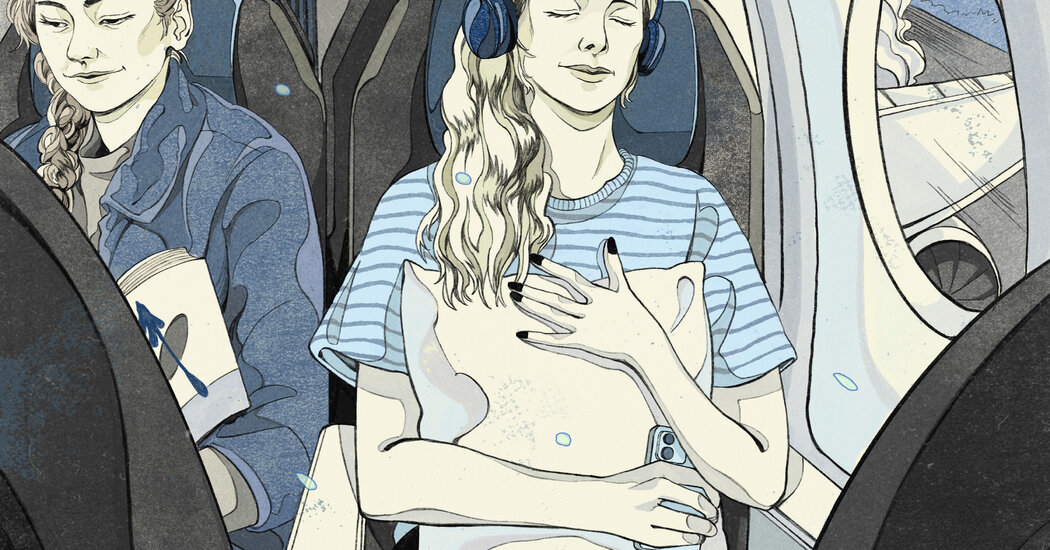More than 25 million Americans have a severe fear of flying, or aerophobia, the Cleveland Clinic estimates. Aerophobia can cause extreme anxiety before and during a flight as the amygdala, the brain’s emotional center, goes into overdrive over perceived dangers.
Yet flying is one of the safest forms of transportation. A study published in August in the Journal of Air Transport Management showed that travelers worldwide have a one-in-13.7 million chance of being killed in an air crash. By contrast, in the United States, you have a one-in-93 chance of dying in a motor vehicle accident, according to a 2022 report from the National Safety Council.
Despite those reassuring statistics, aerophobia commonly causes people to experience a range of symptoms, from jitters to total panic. If you’re among the travelers with this common condition, here are some tips that could help you fly more comfortably.
Understand your triggers, and breathe
First, recognize what makes you feel scared. For example, images of plane crashes in movies or news about accidents can set off anxiety or even hyperventilation. If this happens, try breathing exercises to bring yourself back to a relaxed state. In one method called box breathing, you inhale deeply for four seconds, hold for four seconds, exhale for four seconds and hold again for four seconds. Repeat this cycle three to four times, until you feel calmer.
Hear from a pilot
Loss of control is at the center of many flying fears. As Tom Bunn, a therapist and retired airline captain, explained, “The problem is this: Flying is a no-control, no-escape situation. If we are going to give up escape, we need to know we don’t need to escape, because if anything goes wrong, there is a backup system that can be turned to.” To help with this, it can be useful to understand how pilots do their jobs. Try listening to the podcast Dial a Pilot, specifically geared toward nervous fliers, in which the hosts, pilots themselves, explain the flying process and crew training.
Take advantage of apps
The sounds of an airplane can also provoke anxiety, so try normalizing them. The Flight Buddy app has audio clips of normally functioning airplanes, including the sounds of an A320 engine starting, luggage being loaded, and retracting and extending the landing gear. Listening to what you will hear aboard the plane can help make you feel less surprised by sounds that may be new to you, which can trigger anxiety.
